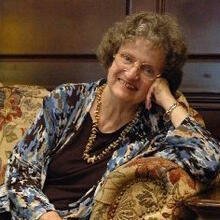Books That Speak Volumes
I wonder if there is a new fascination for books about books, especially those books we call classics. Recently a group of sketches by Italo Calvino was published as Why Read the Classics? Not long ago David Denby offered Great Books: My Adventures With Homer, Rousseau, Woolf, and Other Indestructible Writers of the Western World. And now we have Raymond Schroth’s commentaries on 50 books he considers vital. Some of these sketches appeared in an earlier Schroth title with a similar purpose, and have been brushed up for this volume. Other essays are brand new.
I liked this book. A number of the works Father Schroth chooses are among my favorites. Naturally, it pleased me to have my preferences confirmed. But at least half were titles I hadn’t read. The list is challenging and personal, expressing quirks of interest and taste. Newman’s The Idea of a University is here, but no other books on education. Five of the 50 books selected are books of the Bible: Genesis, Job, Robert Alter’s translation of the story of David in 1 and 2 Samuel, the Gospel of Luke, the Gospel of John. A number of stellar spiritual autobiographies are included: Augustine’s Confessions, Thérèse of Lisieux’s The Story of a Soul, Thomas Merton’s The Seven Storey Mountain, Dorothy Day’s The Long Loneliness. Why these, one asks? Because the author likes them. There are ever so many fine novels, among them James Joyce’s Dubliners, Sigrid Undset’s Kristin Lavransdatter, François Mauriac’s Thérèse, George Bernanos’s Diary of a Country Priest, Graham Greene’s The Power and the Glory, Evelyn Waugh’s Brideshead Revisited, Alan Paton’s Cry, the Beloved Country, Shusaku Endo’s Silence. Again, this is not a comprehensive list of the great Christian novels. It is a rich and idiosyncratic selection.
Father Schroth not only celebrates these 50 books, but also shows what the love of reading is all about. If his choices are quirky, ours may be too. Also, his titles convey to us larger issues he finds pressing: social responsibility, concern for the earth, love of God, hunger for righteousness. Schroth’s brief essays about each title can refresh us even when we know the works all too well.
I liked his treatment of Chesterton’s Orthodoxy. He observes that this book can be a favorite both of liberals and conservatives, and remarks that Chesterton was a self-described rebel. He offers a vivid cameo of Chesterton: his opinionated style, his prolific output of words, his way of laughing at his own jokes. We come to see how Chesterton’s creative spark once helped ignite a Catholic revival. Even more useful, the author tells us how to read Orthodoxy today, not so much as a coherent essay but for the flashes of insight that jump off the pages of its nine chapters. Next he zeroes in on The Ethics of Elfland, a brilliant chapter in which Chesterton links the themes of the Magnificat (how God pulls down the mighty from their thrones, and exalts those of low degree) with the surprising reversals and transformations of fairy tales. Schroth’s essay ends with a short account of Chesterton’s death, and words he spoke as he lay dying: The issue is now quite clear. It is between light and darkness and everyone must choose his side. Schroth’s method is an intermingling of anecdote and analysis. Chapter by chapter he invites the reader to love the same books he does.
I was surprised by some choices: Mont-Saint-Michel and Chartres, by Henry Adams, in which all of Christian history is symbolized in one cathedral; Abraham Lincoln’s The Second Inaugural Address, in which Lincoln is said to be a secular saint; Edward Steichen’s The Family of Man, a book of photographs in which Schroth sees the human family revealed; Michael Harrington’s The Other America and Jonathan Schell’s The Fate of the Earth. It is good to find such harrowing works of social commentary keeping company with C. S. Lewis’ The Four Loves and Christopher Dawson’s The Historic Reality of Christian Culture: A Way to the Renewal of Human Life. I could also admire the author’s choice of Dead Man Walking and Robert Ellsberg’s All Saints: Daily Reflections on Saints, Prophets and Witnesses of Our Time, even though it may be a bit soon to call them classics.
In his conclusion, the author spells out one criterion he has used: Do I love this book enough to reread a hundred pages or so several times a week and walk into a classroom bursting to share what I know with young men and women who might well be angry that I have given them so much to read? As all good teachers do, Father Schroth includes a helpful list of sources and suggestions for further reading.
To sum up, Raymond Schroth says we may grow morally by confronting vices and virtues in others, through books. I was reminded of Milton’s a good book is the precious life-blood of a master spirit. Schroth’s reflections suggest how we may think more deeply and act more courageously by engagement with the written word.
This article also appeared in print, under the headline “Books That Speak Volumes,” in the November 12, 2001, issue.








